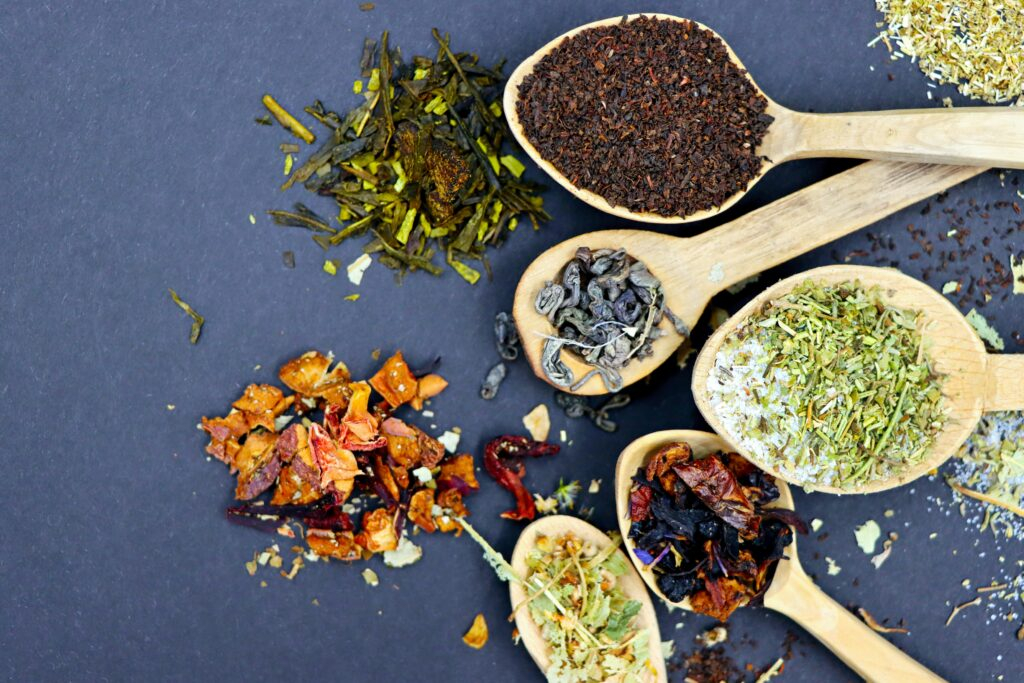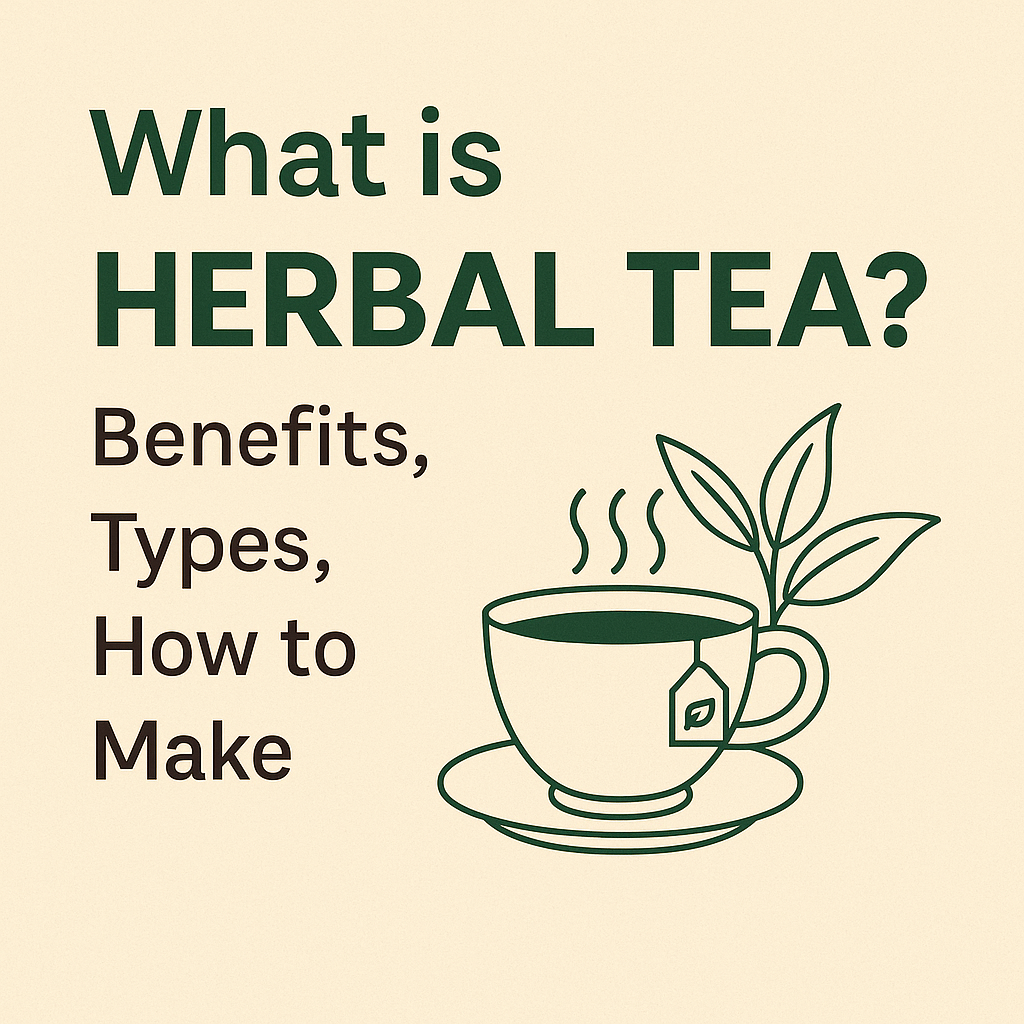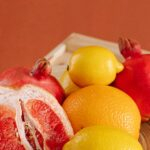🌿 Introduction to Herbal Tea
Herbal tea, unlike traditional tea derived from the Camellia sinensis plant (black, green, oolong), is made from a blend of herbs, flowers, spices, or other plant materials. It is naturally caffeine-free and cherished not only for its flavors but also for its therapeutic properties. People across the world consume herbal teas to promote relaxation, boost immunity, and aid digestion, among many other health benefits.
🌱 What is Herbal Tea?
Herbal tea (also called tisane) is an infusion made by steeping herbs, flowers, fruits, or seeds in hot water. These are non-caffeinated drinks and often consumed for their health-promoting properties.
Despite the name, herbal tea is not actually “tea” as these beverages typically do not contain the leaves or leaf buds of tea plants. Herbal teas are made from tisanes, which are blends or infusions of dried fruits, flowers, spices or herbs in water. Tisanes have been shown to offer medicinal effects. Be an informed consumer—many beverages marketed as “herbal tea” with “herbal tea benefits” are nothing more than sugary juice. Is herbal tea good for you? Some herbal teas offer health-promoting properties and have been used as natural remedies for centuries.
Dieticians recommend herbal teas in moderation with medical approval as they can pose some risks to individuals with certain health conditions. Avoid herbal teas that contain added sugar and other additives. Herbal tea should not be used as a substitute for medical treatment.
Unlike true teas, which are made from tea leaves, herbal teas can be made from a wide variety of natural ingredients, such as:
- Mint leaves
- Chamomile flowers
- Ginger root
- Lemongrass
- Hibiscus petals
- Rosehips
- Fennel seeds
- Tulsi (Holy Basil)
💚 Health Benefits of Herbal Tea
Herbal teas are more than just flavorful beverages. Here’s how they benefit your body:
- Promotes Relaxation and Better Sleep
- Chamomile, lavender, and lemon balm teas help reduce anxiety and induce calmness.
- Supports Digestive Health
- Peppermint, ginger, and fennel teas ease bloating, nausea, and indigestion.
- Boosts Immunity
- Tulsi, echinacea, and ginger teas enhance your body’s natural defenses.
- Improves Skin Health
- Antioxidant-rich teas like hibiscus and rooibos fight skin aging and reduce inflammation.
- Detoxifies the Body
- Dandelion, nettle, and lemongrass teas help flush out toxins.
- Relieves Menstrual Discomfort
- Raspberry leaf and chamomile help reduce cramps and hormonal imbalances.
- Regulates Blood Sugar and Cholesterol
- Cinnamon and fenugreek teas support metabolic health.
🍵 Popular Types of Herbal Teas

Here are some widely loved herbal teas and their key benefits:
- Chamomile Tea
- Best for: Stress relief and sleep improvement
- Flavor: Mild, apple-like
- Peppermint Tea
- Best for: Digestive issues and headaches
- Flavor: Fresh and minty
- Hibiscus Tea
- Best for: Lowering blood pressure and improving heart health
- Flavor: Tart and cranberry-like
- Ginger Tea
- Best for: Nausea, sore throat, and inflammation
- Flavor: Spicy and warm
- Tulsi (Holy Basil) Tea
- Best for: Immunity and stress reduction
- Flavor: Earthy and slightly sweet
- Lemongrass Tea
- Best for: Detoxification and digestion
- Flavor: Citrusy and refreshing
- Rooibos Tea
- Best for: Skin health and caffeine-free energy boost
- Flavor: Nutty and sweet
- Dandelion Tea
- Best for: Liver support and detox
- Flavor: Slightly bitter
🫖 How to Make Herbal Tea at Home
Making herbal tea is simple, and you can use fresh or dried ingredients:
Ingredients:
- 1 to 2 teaspoons of dried herbs (or a handful of fresh ones)
- 1 cup of boiling water
Steps:
- Add herbs to a teapot or cup.
- Pour boiling water over the herbs.
- Cover and steep for 5–10 minutes.
- Strain and enjoy. Add honey or lemon if desired.
Tip: For stronger tea, steep longer or use more herbs.
✅ Tips for Best Herbal Tea Experience
- Use filtered water for pure taste.
- Always store dried herbs in an airtight container away from sunlight.
- Avoid adding sugar—opt for honey, jaggery, or stevia.
- Combine herbs like ginger + tulsi + lemon for immunity-boosting blends.
- Drink warm for best therapeutic effects.
⚠️ Precautions and Who Should Avoid Herbal Teas
- Pregnant and breastfeeding women should consult a doctor before consuming herbal teas.
- People with allergies should ensure they are not sensitive to specific herbs.
- Some herbs may interact with medications (e.g., blood thinners, BP meds).
🌍 Final Thoughts
Herbal teas are nature’s gentle healers. Whether you need a cup to calm your nerves, settle your stomach, or simply relax, there’s a blend for every need. Unlike synthetic supplements, they are soothing, flavorful, and rooted in ancient traditions.
Make herbal tea a part of your daily self-care ritual—and sip your way to better health!
FAQs
Q1: Can I drink herbal tea every day?
Yes! Most herbal teas are safe for daily use. Just rotate types to avoid overconsumption.
Q2: Is herbal tea caffeine-free?
Yes, most herbal teas are naturally caffeine-free.
Q3: What is the best time to drink herbal tea?
Evening is best for calming blends (like chamomile); mornings are ideal for detox or digestive teas.
Q4: Can children drink herbal tea?
Yes, but mild teas like chamomile or fennel in small amounts are safest. Always consult a pediatrician.
Tags: #HerbalTea #NaturalHealth #Wellness #TeaBenefits #HomeRemedy #OrganicLiving









